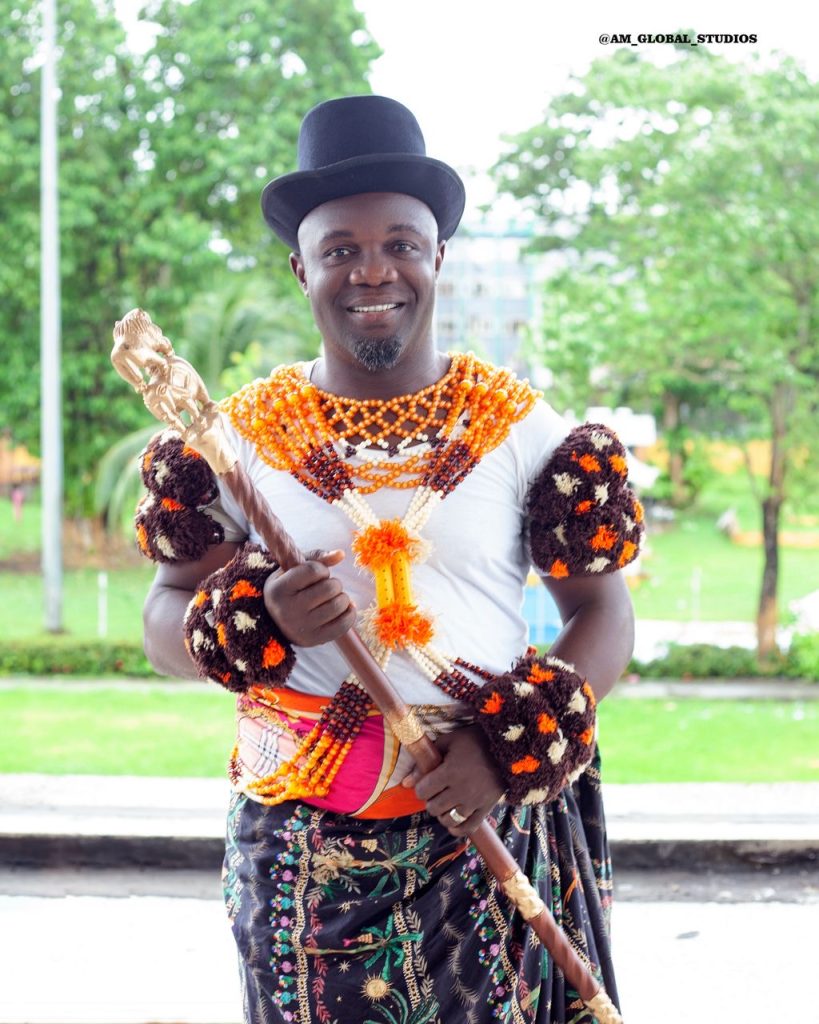The growing popularity of the Carnival Calabar, Africa’s biggest street party, is not in doubt. This was once more underlined by the successful conclusion of the 2024 street parade themed “Our Shared Prosperity,” organized by our Sweet Prince, His Excellency, Senator Prince Bassey Edet Otu, which attracted over 3,000,000 spectators and not less than 300,000 tourists to the state.
The street parade contest was between seven bands eyeing the prestigious prize of Band of the Year. The street parade was made more robust with the participation of seven non-competing bands, including the University of Calabar Band and the Market Women Band, among others. Carnival Calabar is growing in leaps and bounds because His Excellency, Senator Prince Bassey Edet Otu, stops at nothing to ensure that the global ranking of Carnival Calabar, as the best carnival on the continent, is retained and improved upon during his servant-leader years as governor. Everything points to that, as exemplified by his commitment and consistency in policy implementation.
His Excellency, Senator Prince Bassey Edet Otu’s initiatives regarding the cultural development of Cross River State stem from a sound knowledge of history, precedence, and are couched in sincerity and commitment to grassroots development. The state’s impressive cultural achievements date back to the 1970s when, as part of the then South Eastern State, it dominated the Nigerian National Festival of Arts and Culture, winning the Head of State’s Golden Gong repeatedly. This legacy inspired the construction of the Calabar Cultural Centre, a visionary project undertaken at a time when few states in Nigeria prioritized cultural infrastructure. The centre stands as a testament to the state’s early recognition of the importance of cultural capital in the nation’s development. The Centre was to serve as an institute for the training of manpower that could appropriate, engineer, and manage the new cultural milieu of post-colonial and post-civil war Nigeria, in which reconciliation and integration of the nation’s cultural capital needed to be exploited for the common good. Although it suffered delays regarding completion after 1975 due to other competing priorities of the state, it received a boost in 1991 under the regime of General Ibrahim Badamosi Babangida, and the project was completed. This edifice symbolizes the robustness of the state’s cultural wealth, exploits, and potentials, as well as the foresight of its leaders regarding the viability of cultural capital in nation-building. It is, indeed, a testament thati marks the golden age of our state’s cultural development.

Fast forward to 2005. Something magnificent exploded in the serene city of Calabar. For over three decades, the culture sector in the state and throughout Nigeria was in the doldrums and could barely be noticed, except for occasional spurts of the annual national festival of arts and culture, which sometimes were postponed or canceled by years. The Cultural Centre Calabar had, before now, generated and popularized its Sunday-Sunday Show (SSS). A good initiative it was for families and friends to have a good theatrical/entertainment time and leisure. It was a domestic affair. The masterstroke was His Excellency, Mr. Donald Duke, who struck gold with the brilliant initiative of a street parade by the name Carnival Calabar. The initiative received the support of both the public and private sectors, and the people’s carnival was born with a vision of creating a festival that was to make Cross River State a home of tourism and hospitality, not only in Nigeria but all of Africa. That vision has been achieved and requires more effort to not only sustain it but also expand its scope. The successive governments of His Excellency, Liyel Imoke, and His Excellency, Ben Ayade, gave cordial support and commitment to this vision. The sustainability of that vision depended on them and the legislature, and we owe them a big “thank you.”
Enter the Sweet Prince. With the 2023 Carnival Calabar, themed Season of Sweetness, His Excellency, Senator Prince Bassey Edet Otu, made a bold statement of ‘culinary’ improvement in the first carnival he organized—an additional taste to a well-prepared, globally adopted tourism dish. Till date, His Excellency has lived up to those expectations. The 2024 Carnival Calabar ended on a high note with 7 competing bands, 7 non-competing bands, 18 Cross River State Local Government Areas participation, and visiting states’ troupes, as well as the second edition of the novel Ikom and Ogoja carnivals. These are, aside from the international standard content of The Queen of Humanity Beauty Pageant, a brainchild of the ebullient, visionary, and delectable state’s First Lady, Bishop Eyoannwan Bassey Otu.
As 2025 dawns, a new life is in the pipeline for the cultural development of the state. As I write, every sign around the Cultural Centre, Calabar, indicates that something ruthlessly beautiful and interesting is about to happen to that iconic edifice. Sealed from the eyes of the public, everyone is wondering what “Closed for Reconstruction and Re-modelling” is all about. Going by his precedence, it is not far from the truth in that inscription that His Excellency has a grand plan of leveraging his successes in the cultural and creative economy sector to raise the stakes in the cultural capital of Cross River State ahead of her peers in cultural development that would impact directly on the people of the state. Another golden age of cultural development in terms of infrastructure to deliver world-class performative, plastic, and literary arts and education is dawning. There is assurance that by the time the barricades and concealing fences around the Cultural Centre, Calabar, come down, the trademark excellence of the people’s Sweet Prince would awe the populace, and believe me, the artistic and other services hold the promise to be top-notch and top-class, but for all. With His Excellency Senator Prince Bassey Edet Otu, the People’s Paradise is reaffirming her claim as Destination Cross River on the global tourism map. Indeed, another golden age of cultural development in Cross River State is here.
Effiong Bassey Edem, ANIPR, SA Culture and Heritage










